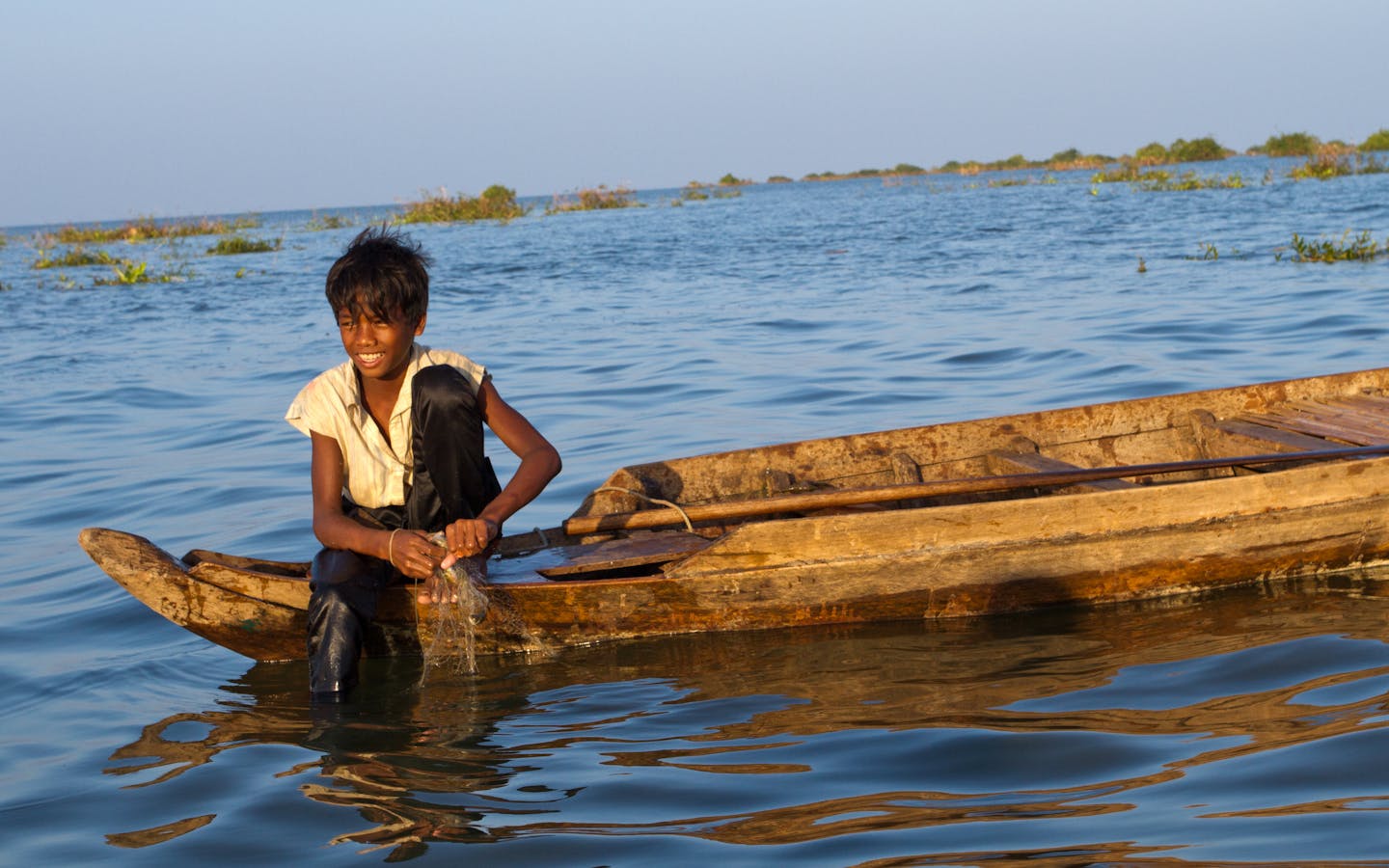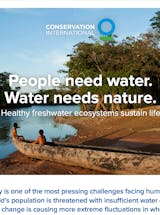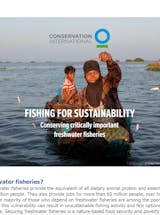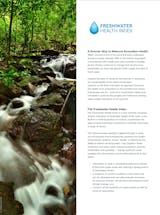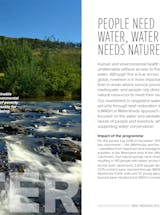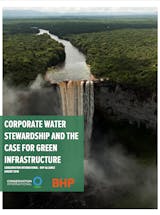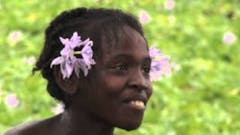Fueled by research that hand-washing is one of the best ways to prevent the spread of COVID-19, sales of soap have skyrocketed in recent months.
But for the one in three people around the world who do not have access to clean water, this simple step in disease prevention isn’t so simple.
Rural populations disproportionately lack effective water, sanitation and hygiene services — known collectively as WASH — due in large part to a lack of infrastructure, high costs and weak governance. Meanwhile, climate change, pollution and development are diminishing freshwater sources and ecosystems at a rapid rate, compounding the problem.
Conservation News spoke with the director of Conservation International’s WASH in Watersheds program, Colleen Sorto, about how when it comes to water and human health, where your water comes from can be just as important as how you use it.
Question: How big of a role does WASH truly play in preventing the spread of disease?
A: According to experts, handwashing can reduce the spread of disease by more than 20 percent — and using improved hygiene practices when managing human waste can reduce that risk even more. Delivering WASH is about providing communities with access to clean water through taps and pipes, as well as latrines and proper handwashing and hygiene education — because they all go together. Think about it as a three-legged stool: Access to clean water sources is one leg, healthy behaviors are another and infrastructure such as waste systems and latrines is the third. You need all three legs for the stool to balance.
Increasing WASH access in villages, schools and healthcare facilities to educate people on the value of hygiene in disease prevention is crucial, but only part of the story. Often people neglect to think about where the water for these services is coming from — and what happens to that water once we’re done with it.
Q: What does this have to do with conservation?
A: Water, poverty and the environment are interconnected, and the long-term sustainability of WASH depends on nature’s ability to provide reliable sources of water — which is where conservation comes into play. Through Conservation International’s WASH in Watersheds program, we help communities link WASH and freshwater conservation activities in a holistic way. In South Africa, for example, poor land and water management practices have impacted the catchment of the Mzimvubu — one of South Africa’s last free flowing rivers. Destructive grazing practices, invasive plant species and inadequate sanitation infrastructure have degraded the river and reduced the quality and quantity of water flowing to communities downstream.
Since 2015, Conservation South Africa (CSA) — Conservation International’s local affiliate — has worked with communities in this area to improve the well-being of local people by restoring the health of their watershed. Our first step: Separating the main water sources for animals and people to decrease the likelihood of contamination by livestock and potential disease outbreaks from animal waste. Then, we worked with local volunteers to remove water-thirsty, invasive plants in the region and restore natural springs, while collaborating with the local government to launch several education campaigns about good health and sanitation practices.
Q: What are the other benefits of conserving freshwater ecosystems?
A: Along with helping to ensure more reliable sources of water, protecting watersheds can mitigate local and downstream flooding, increase soil’s ability to absorb water, and sustain inland fisheries that contribute to food security. To help additional communities get these benefits, CSA is working to replicate the WASH in Watersheds program across the region. The municipality is also considering how they can link our spring restoration approach with their future investments in infrastructure.
Particularly in times of crisis, freshwater conservation can build resilience for rural communities and the species that inhabit these crucial ecosystems, while helping communities prepare for future pandemics.
Q: How?
A: Freshwater conservation can help us all prepare for— and mitigate the impact of — future pandemics by providing communities with the water they need to support WASH activities such as handwashing.
Although a lot of our WASH work is focused on communities, there are crucial roles that governments, businesses and NGOs must also play. Policies, practices and programs for local communities must support local people with the tools they need to access WASH.
Once countries address the most basic needs, then they can engage in broader goals of freshwater stewardship, management and sustainable development to focus on long-term protection of water sources. At international, national and local levels, it is about bringing together governments, businesses and NGOs to identify the barriers that are in place and figuring out how to knock them down. Ultimately, WASH in Watersheds is all about giving communities the tools they need to help themselves.
Further reading:
- Expert: To prevent pandemics like COVID-19, 'take care of nature'
- Study: Protect these places — or face climate doom
- What does COVID-19 have to do with nature? These 5 articles explain
Colleen Sorto is thedirector of Conservation International's Wash in Watersheds program. Kiley Price is a staff writer at Conservation International. Want to read more stories like this? Sign up for email updates. Also, please consider supporting our critical work.
